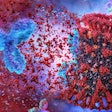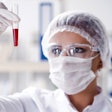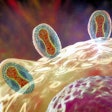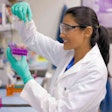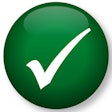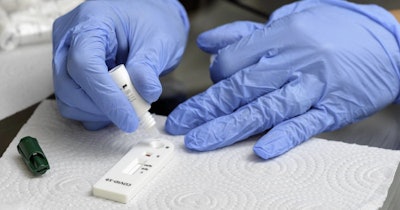
Roche on Wednesday announced the launch of SARS-CoV-2 rapid antigen tests for self-testing and professional use in countries accepting the CE Mark.
Roche is introducing the next-generation test portfolio in partnership with SD Biosensor, with whom Roche has a global distribution agreement and has previously launched a range of rapid antigen and antibody tests.
Distribution of the new rapid tests is projected to begin in the coming weeks.
The Basel, Switzerland-based firm said it is building on a broad portfolio of COVID-19 rapid tests with three new test configurations that feature an improved capture antibody and the addition of new digital data-sharing capabilities.
The tests work seamlessly with Navify Pass, Roche’s digital solution that allows individuals and healthcare professionals to immediately store, display, and share COVID-19 vaccination status and test results.
With results delivered in about 15 minutes, the tests aid in the diagnosis of SARS-CoV-2 infection in individuals with or without symptoms consistent with COVID-19, Roche said.
“The continued evolution of the SARS-CoV-2 virus and COVID-19 pandemic reinforce the need for individuals and healthcare systems to have access to the most reliable rapid testing solutions possible,” Thomas Schinecker, CEO of Roche Diagnostics, said in a statement. “These tests are ready to support global society as we navigate this next phase of the pandemic.”
The tests set to launch are the SARS-CoV-2 Rapid Antigen Test 2.0 and SARS-CoV-2 Rapid Antigen Test 2.0 Nasal, which uses nasal sampling. Both are for professional use.
The third product, a self-test , is called SARS-CoV-2 Antigen Self Test Nasal and uses nasal sampling.
Specifically, SARS-CoV-2 Rapid Antigen Test 2.0 is a rapid chromatographic immunoassay for the qualitative detection of the nucleocapsid protein of SARS-CoV-2 present in human nasopharyngeal swab samples. In a prospective clinical study, the SARS-CoV-2 Rapid Antigen 2.0 showed a relative sensitivity of 99% and a relative specificity of 99.75%. In total, 100 PCR-positive and 402 PCR-negative subjects participated in this study. This included 320 asymptomatic subjects, among whom 34 were positive and 286 were negative, and 182 symptomatic individuals, among whom 66 were positive and 116 were negative.
SARS-CoV-2 Rapid Antigen Test 2.0 Nasal is a rapid chromatographic immunoassay for the qualitative detection of the nucleocapsid protein of SARS-CoV-2 present in human nasal swab samples. In prospective clinical studies, the SARS-CoV-2 Rapid Antigen 2.0 Nasal showed a relative sensitivity of 95.80% and a relative specificity of 100%. In total, 143 PCR-positive and 487 PCR-negative subjects participated in these studies. This included 320 asymptomatic subjects, among whom 34 were positive and 286 were negative, and 310 symptomatic individuals, among whom 109 were positive and 201 were negative.
The enhanced SARS-CoV-2 Antigen Self Test Nasal is a lateral flow test for the qualitative detection of SARS-CoV-2 nucleocapsid antigen in human nasal samples. This test is used to detect antigens of the SARS-CoV-2 virus in individuals suspected of having COVID-19. In prospective clinical studies, the SARS-CoV-2 Antigen Self Test Nasal showed a relative sensitivity of 95.8% and a relative specificity of 100%. In total, 143 PCR-positive and 487 PCR-negative subjects participated in the studies. This included 320 asymptomatic subjects, among whom 34 were positive and 286 were negative, and 310 symptomatic individuals, among whom 109 were positive and 201 were negative. Additionally, 128 of the subjects were lay-users, sampling and testing themselves or another lay-user such as their child.
Roche said it maintains the capacity to provide several tens of millions of each of the tests per month, with the option to quickly build up additional capacity if needed, to address sustained high worldwide demand for rapid testing from governments, healthcare systems, and individuals.
Roche added that lab testing showed that all three tests can qualitatively detect major variants of concern including Delta and Omicron variants. Emerging variants are continuously monitored.








